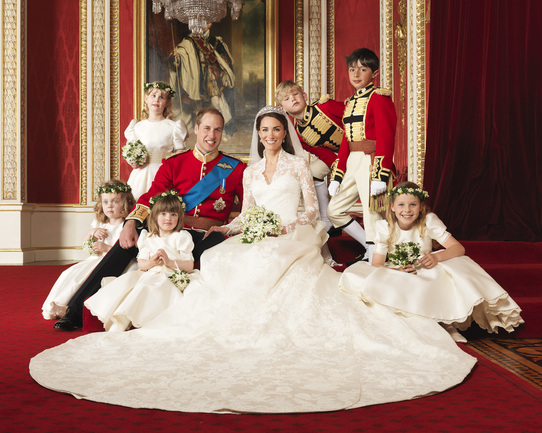I don't know about you guys, but I can get very confused when it comes to royal titles and stuff. Count of this, duchess of that, it never seems to end. And who is closest to the king in terms of family? Are they all related?
Let's start this way: the European aristocracy created 5 lifetime and hereditary titles for people outside the royal family back when the Roman Empire ended and Middle Age began, a time when Europe was divided into small kingdoms. Every kingdom was ruled by a dinasty, who was surrounded by aggregates, which formed a social elite. These first ancestors of nobility distinguished themselves from the remaining population (peasants and slaves) by parentage with the king or services provided for him. The titles followed this hierarchical order: duke, marquis, earl, viscount and baron.
First came the Dukes. This title has its origins in the Roman Empire, whose military commanders received the name of "dux" (meaning "he who leads" in Latin). It is the first echelon of nobility, and also referred as Grand Duke or Archduke.
Following the dukes came the Marquises, a name originated from the medieval dialect of southern France, the Provencal. The marquis was responsible for the civil administrarion and military defense of frontier or poorly pacified regions.
Earls or Counts also received their names in ancient Rome, derived from the Latin word "comes" ("he who follows"), referring to those who lived alongside the emperor: advisors, directors and palace officers. Among the Francs, the same name was given to judges and district governors. The ones who were connected to the Court were called Palatine Counts and had great influence. Knaves (like those from cards) are the same as Earls.
Viscounts substitute Counts. That is: they are designated to do the Count's work when he is absent or incapable of doing it. From the tenth century on, this title became hereditary, also being granted to the sons of Counts.
Finally, the word Baron comes from the German term "baro", which means "free man", although officers called this way were usually direct dependents of the king. This title was offered to outstanding people in the same basic functions of other noble positions such as ruling territories and commanding armies.
So which one of these titles do you fancy most? I'll still go with Khaleesi.
Let's start this way: the European aristocracy created 5 lifetime and hereditary titles for people outside the royal family back when the Roman Empire ended and Middle Age began, a time when Europe was divided into small kingdoms. Every kingdom was ruled by a dinasty, who was surrounded by aggregates, which formed a social elite. These first ancestors of nobility distinguished themselves from the remaining population (peasants and slaves) by parentage with the king or services provided for him. The titles followed this hierarchical order: duke, marquis, earl, viscount and baron.
First came the Dukes. This title has its origins in the Roman Empire, whose military commanders received the name of "dux" (meaning "he who leads" in Latin). It is the first echelon of nobility, and also referred as Grand Duke or Archduke.
Following the dukes came the Marquises, a name originated from the medieval dialect of southern France, the Provencal. The marquis was responsible for the civil administrarion and military defense of frontier or poorly pacified regions.
Earls or Counts also received their names in ancient Rome, derived from the Latin word "comes" ("he who follows"), referring to those who lived alongside the emperor: advisors, directors and palace officers. Among the Francs, the same name was given to judges and district governors. The ones who were connected to the Court were called Palatine Counts and had great influence. Knaves (like those from cards) are the same as Earls.
Viscounts substitute Counts. That is: they are designated to do the Count's work when he is absent or incapable of doing it. From the tenth century on, this title became hereditary, also being granted to the sons of Counts.
Finally, the word Baron comes from the German term "baro", which means "free man", although officers called this way were usually direct dependents of the king. This title was offered to outstanding people in the same basic functions of other noble positions such as ruling territories and commanding armies.
So which one of these titles do you fancy most? I'll still go with Khaleesi.
~Ally

 RSS Feed
RSS Feed